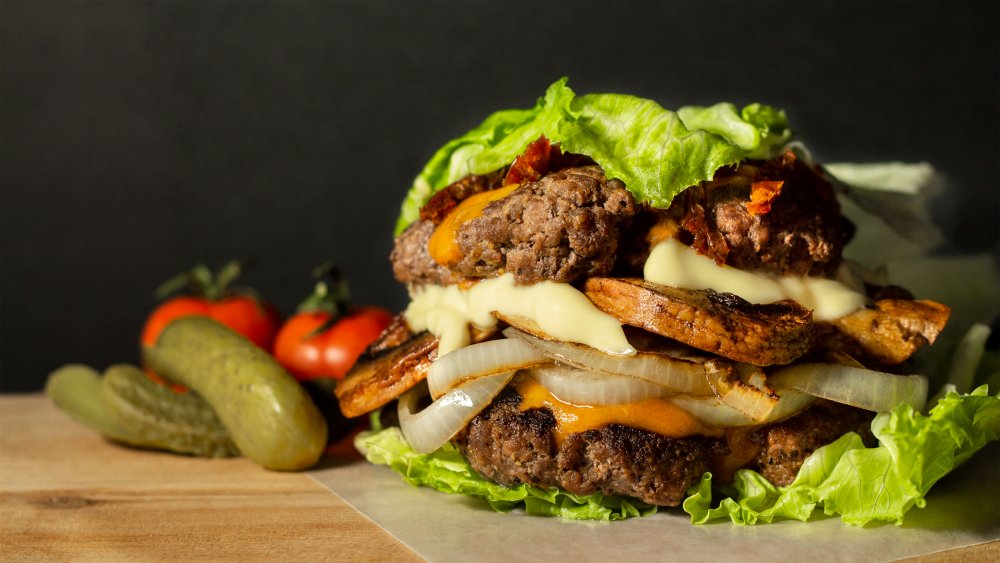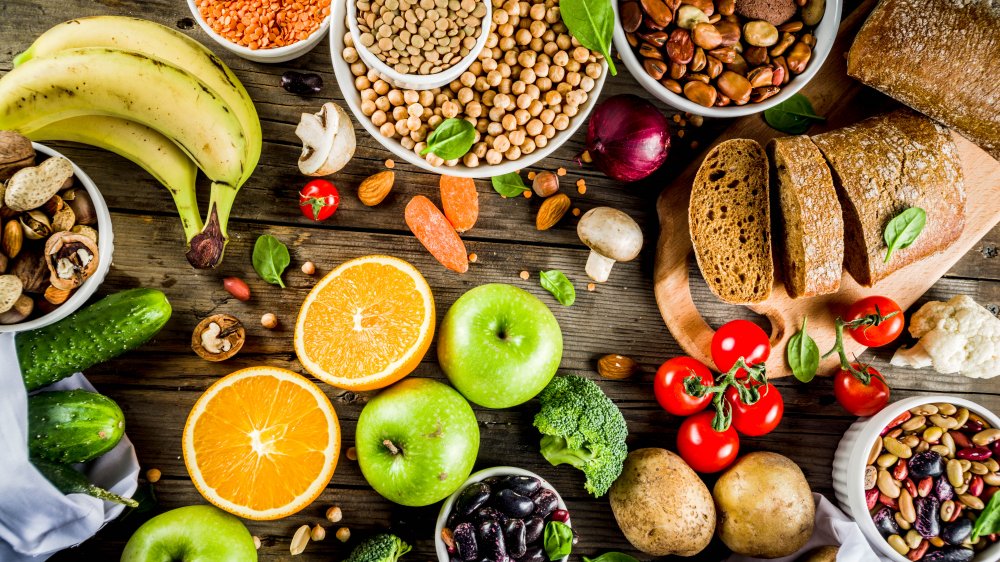Why Eating Low-Carb Isn't As Healthy As You Think
If you're one of the 45 million Americans who are or will be on a diet this year, chances are you've considered low-carb dieting (via The Washington Post). From Atkins to keto to low-carb paleo and more, the trend towards low-carb dieting for weight loss has exploded and shows no sign of weakening. The reason for that likely lies in the fact that for so many people, it's proven to be an effective weight-loss measure. But at what cost? Is it really a healthy way to go?
Carbohydrates (or carbs, for short) are made up of sugar molecules. Our bodies break down these molecules through the process of digestion, turning them into glucose. The glucose is then used as fuel to provide us with energy and to power our cells and all bodily functions (via Cleveland Clinic).
If we are not consuming enough carbs, then instead of using glucose as fuel, our bodies will begin to break down fat instead, which in theory should lead to weight loss. According to Mayo Clinic, this is the basic premise behind low-carb dieting. But while it may not be harmful in the short-term, researchers are finding some disturbing outcomes among those who have followed a low-carb program for long periods of time.
When choosing food, pick quality over quantity
Since low-carb diets don't discriminate among carbs and tend to restrict not only donuts and cookies but fruits, whole grains, and some vegetables as well, it's easy to become deficient in the vitamins, fiber, and antioxidants that those foods provide. Not only that, but several studies have found that those with moderate carbohydrate consumption — being neither low nor high on the carb spectrum — had the lowest risk of mortality (via Healthline).
Dr. Walter Willett, the co-author of one of the studies, and professor of epidemiology and nutrition at Harvard T. H. Chan School of Public Health, points out, "These findings bring together several strands that have been controversial. Too much and too little carbohydrate can be harmful, but what counts most is the type of fat, protein, and carbohydrate."
Not all carbs are created equal, and many health experts now recommend focusing on quality rather than quantity. Bonnie Taub-Dix, RDN, told Prevention, "There's a big difference between having a slice of whole-grain toast with your eggs in the morning and a croissant with your eggs. It's time we change the conversation and start associating carbs with positive things. Carbs are energy giving and provide a wealth of vitamins and fiber, which most of us don't [get] enough of."


